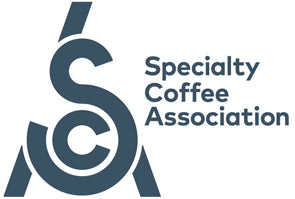Dear Green - Rwanda
Couldn't load pickup availability
Origin
Rwanda
Variety
BM71, Jackson
Processing
Washed
Altitude
1,800 - 2,500 MASL
Roast Profile
Omni
Tasting Notes
Notes of Brown Sugar, Red Fruit and Rooibos
Coffee Facts
This fully washed coffee is processed at Kinini Washing station and produced by a cooperative of women farmers in the surrounding areas, known as the Cooperative Coffee Rusiga Sector (KCRS).
There are some male members of the families but the women took over ownership and charge of the land, with the majority of the farmers being widows from the Rwandan genocide. The support that a smallholder farmer often relies on has found to flourish under this structure and it is often now used as a methodology to help improve the coffee on a farm if an individual is struggling. 85% of the growers that make up KCRS have their farms at 2000 metres above sea level or higher. An incredibly diverse crop production happens on these smallholder plots - legumes, beans, sweet potatoes and more can be grown in between the coffee trees. This is not always to the benefit of the crop, but does allow income to be spread over the year as well as producing food for their own consumption. Typically you’ll find very small family plots with on average around 6 other crops.
Jaquie, and Kinini co-founder Martin, work closely with the local population to not only produce premium quality coffee, but also to improve the local environment with a strong emphasis on building quality schools and local healthcare outposts which have traditionally been lacking. They set up and continue to run an NGO which has an infant and primary school as well as a health post called “A New Beginning Rwanda.” A portion of the proceeds of all coffee sold by them goes to help fund these projects for the long term.
They have entered a partnership with more than 633 local farmers and the local government in Rulindo district. This partnership covers 252 hectares of coffee growing land in the Rusiga and Mbogo sectors, with the coffee being processed at their washing station, Kinini. Having spent time and money improving the local infrastructure, as well as an initial near half a million coffee seedling investment, Kinini were recipients of a contribution from DR Wakefield’s Full Circle event, allowing them to build a cupping lab attached to the drying beds and wet mill. They continue to encourage cooperative work amongst the many farmers and provide agronomic assistance and advice where needed.
In particular, Jacquie from Kinini has been very active in helping the women of KCRS to organise themselves and is also a key member of the International Women’s Coffee Association (IWCA). As Jacquie herself has explained, “a few of them asked me for advice if I could help them form a cooperative and get training from us. We then made different changes behind the scenes, got the necessary paperwork in place and after a few days the cooperative was registered. They then made 12 groups depending on which village is near to them, making training and traveling much easier for all.” After supporting to put all of this in place, Jacquie promised the women that she would market their coffee by the cooperative's name - KCRS. These women are now coffee expert farmers.
This coffee is “fully washed.” In Rwanda, the washed process typically looks a bit different to that which we understand elsewhere as washed. Fully washed denotes the process of pulping the coffee and allowing a 24 hour dry fermentation period before undergoing more traditional wet fermentation, followed by the typical soaking for 24 hours afterwards. This yields a syrupy bodied coffee that tends to hold up very well as it ages.
The terroir of the region is ideal for producing coffee, with lots of Kinini’s coffees gaining Cup of Excellence status as the years have progressed, as well as a growing recognition with roasters and baristas around the world.



